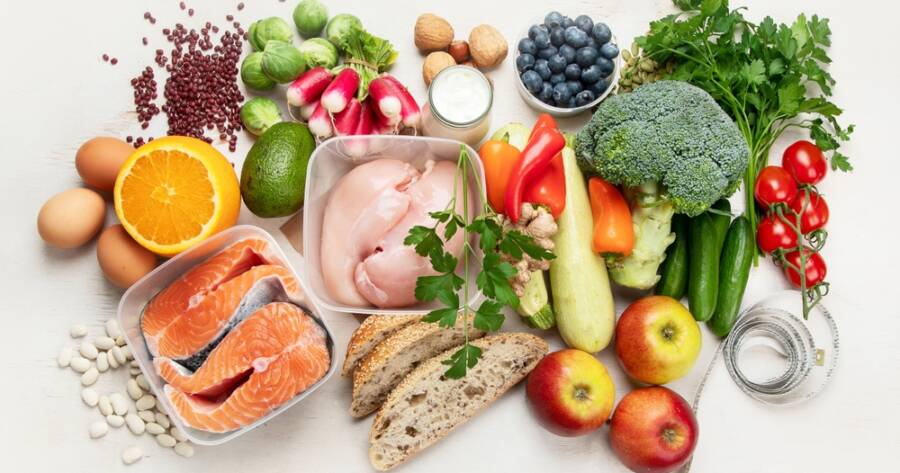Inflammation is the body’s natural response to injury or illness, but when it lingers, it can create long-term health issues. Chronic inflammation has been linked to conditions like heart disease, arthritis, and even depression. That’s why more people are turning to the anti-inflammatory diet—a lifestyle approach to eating that may help calm the body’s internal stress.
What Is an Anti-Inflammatory Diet?
An anti-inflammatory diet is not a strict or branded eating plan. Instead, it focuses on whole foods that are known to reduce inflammation and avoids those that can trigger or worsen it. Think of it as choosing foods that support your immune system without putting it on high alert. It’s not about eliminating entire food groups but being more selective about what you eat day-to-day.
Foods like fruits, vegetables, whole grains, fatty fish, and healthy oils form the backbone of this diet. These are packed with antioxidants, vitamins, and essential fats that can support the body’s natural ability to heal and defend itself. On the flip side, highly processed foods, refined sugars, and excessive red meat can have the opposite effect, promoting inflammation and making symptoms worse over time.
What to Eat More Often
Certain foods are consistently associated with lower levels of inflammation. These include colorful fruits and vegetables—especially berries, leafy greens, and cruciferous veggies like broccoli and cauliflower. These foods are rich in antioxidants, which can help neutralize harmful molecules called free radicals.
Another category to include is omega-3 rich foods like salmon, sardines, and flaxseeds. These fats help regulate the body’s inflammatory processes. Whole grains like brown rice, quinoa, and oats provide fiber, which helps gut health—a key player in immune function. Fermented foods such as yogurt, kimchi, and kefir can also support the gut microbiome, which has a role in controlling inflammation.
Healthy fats from sources like extra virgin olive oil, avocados, and nuts offer anti-inflammatory benefits as well. These foods are nutrient-dense and can easily be added to meals without requiring a major dietary overhaul.
What to Avoid or Limit
Reducing inflammation also means cutting back on foods known to trigger it. One major culprit is refined sugar, often found in soda, candy, and processed snacks. Sugar can increase inflammatory markers in the blood, especially when consumed frequently.
Trans fats, often present in packaged baked goods and fast food, are another concern. These fats not only raise bad cholesterol levels but also contribute to systemic inflammation. Highly processed meats like bacon, sausage, and deli meats can also be problematic due to preservatives and additives.
Refined carbohydrates such as white bread, pastries, and sweetened cereals can spike blood sugar, which in turn may worsen inflammation. Alcohol and excessive caffeine intake may also play a role, especially when consumed in large amounts or alongside poor sleep and high stress.
Lifestyle Factors That Support the Diet
While food plays a key role, lifestyle matters too. Regular physical activity helps reduce inflammation and supports heart health. Even a 30-minute walk most days of the week can make a difference. Sleep also has a direct impact. Poor sleep habits can raise inflammation levels, even if you’re eating well.
Managing stress is another piece of the puzzle. Chronic stress sends signals to the body to stay in fight-or-flight mode, which can keep inflammation levels high. Practices like meditation, yoga, or spending time outdoors can help calm the nervous system and support the goals of an anti-inflammatory lifestyle.
Small Changes, Big Results
If switching to an anti-inflammatory diet feels overwhelming, start with one or two changes. Swap out white bread for whole grain. Add a serving of leafy greens to your dinner. Choose olive oil over butter. These small shifts can build over time and lead to noticeable benefits in how you feel.
You don’t have to give up all your favorite foods, either. The idea is to create a balanced plate most of the time, not to achieve perfection. Once the body adjusts to a more supportive way of eating, many people find that cravings for processed or sugary foods naturally decrease.
The Benefits of Ditching Inflammatory Foods
Cutting back on foods that promote inflammation—like sugary snacks, deep-fried dishes, and refined carbs—can lead to noticeable health changes. Many people report feeling less bloated, more energetic, and even clearer mentally.
Over time, reducing these foods may also help lower the risk of chronic conditions such as heart disease, type 2 diabetes, and joint pain. By simplifying your plate and focusing on whole, unprocessed options, your body can spend less time fighting off harmful substances and more time functioning at its best.
A Calmer Body Begins at the Table
Chronic inflammation doesn’t happen overnight, and neither does healing. But the good news is that every meal is a chance to make a better choice.
The anti-inflammatory diet is less about restriction and more about support—giving your body the fuel it needs to function well. With consistent habits and mindful eating, it’s possible to reduce inflammation, improve well-being, and enjoy your food along the way.

